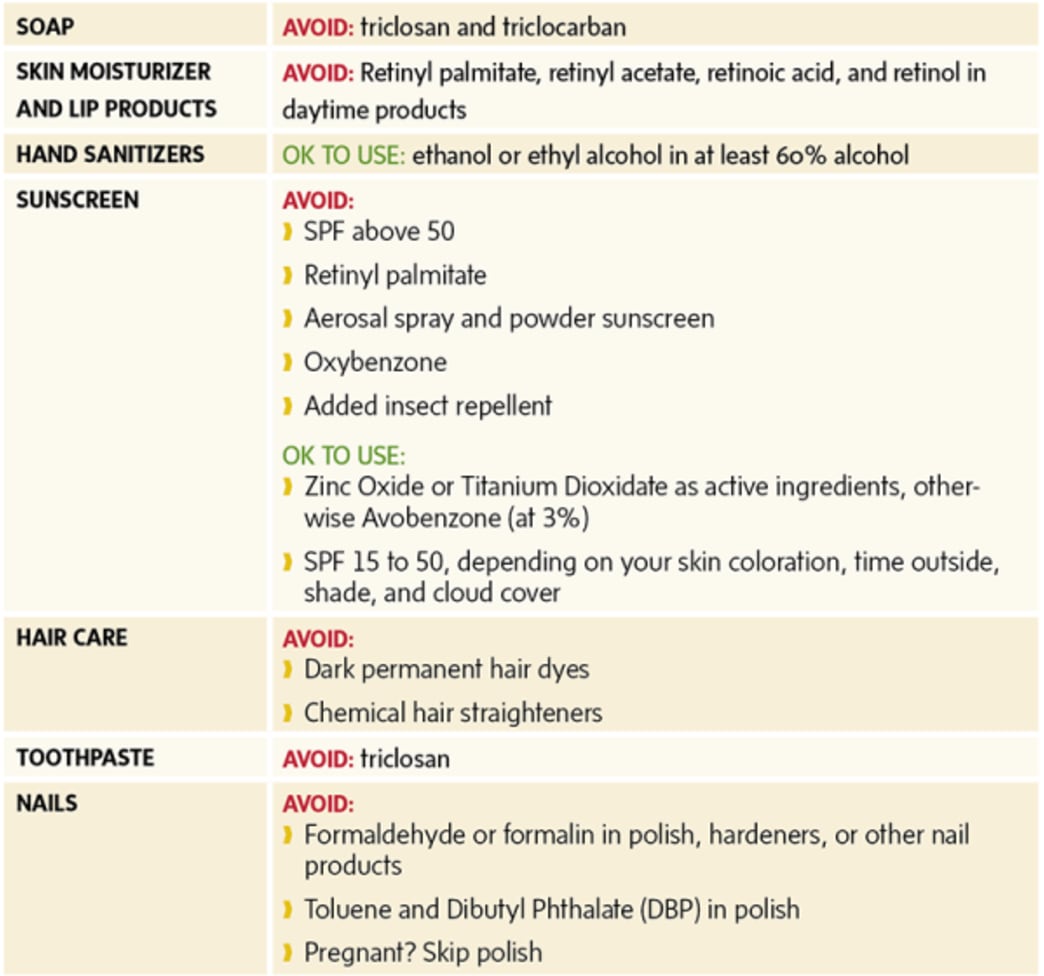
7 Foods to Heal Your Thyroid
Is your thyroid making you fat, sad and tired? It’s possible. It is estimated that as many as 27 million people suffer from a thyroid condition – mostly from an underactive thyroid condition called hypothyroidism. And some studies show that even mild thyroid impairment may result in cognitive impairment. The thyroid is a small, butterfly-shaped gland at the base of the neck that makes hormones that regulate energy, metabolism, mood, heart rate and other important functions. When it’s out of whack, symptoms can include weight gain, fatigue, dry skin and hair, sluggish thinking and depression. If you suspect your thyroid’s not functioning properly, check with your health-care provider. And support your thyroid – and overall health – with these seven foods.
Apples
Like pears, plums and citrus fruits, apples are rich in pectins, a gelatinous fiber that helps clear the body of heavy metals, especially mercury, which has been associated with thyroid disorders. Studies show that pectins significantly increase the excretion of toxic metals and can reduce heavy metals in the body by 74%. Try this: Cut apples crosswise (don’t peel them – that’s where pectin is richest!), dredge in date sugar, pan-fry in coconut oil until tender, and top with shredded basil and crumbled blue cheese. Spiralize a whole apple with skin, lightly steam in apple juice until tender and serve with yogurt, hemp seeds and blueberries as a breakfast noodle bowl. Simmer chopped apples, parsnips, shallots and sprigs of thyme in broth until tender; remove thyme sprigs, purée until smooth and top with additional thyme and a dollop of crème fraîche.
Brazil Nuts
The thyroid has the highest selenium content of any organ, and studies suggest that selenium deficiencies may be a primary cause of thyroid disorders. Brazil nuts are an especially rich food source of selenium; other sources include tuna, sardines, beef, turkey and chicken. Try this: Combine Brazil nuts, olive oil, garlic and a handful of arugula and basil in a food processor and process into a savory pesto. Or soak Brazil nuts overnight in water, drain and purée with fresh water, a couple of dates and a dash of vanilla for a delicious milk alternative. For a rich, dairy-free soup, cut sweet potatoes and onions into chunks and simmer in stock with a sprig of rosemary until soft; remove and discard rosemary, add Brazil nuts and purée until creamy and smooth.
Chickpeas
Chickpeas are high in fiber, which can help prevent or reduce constipation – a common complaint in people with thyroid disorders. Bonus: Chickpeas are also high in zinc, critical for thyroid function. Try this: Toss cooked chickpeas with olive oil, coarse sea salt and minced rosemary, spread on a baking sheet, and roast at 400°F until crispy; let cool for a crunchy, nut-like snack. For a vegan tagine, cook chickpeas with sweet potatoes, onions, tomatoes, garlic, cinnamon, cumin and broth; stir in chopped dried figs and slivered almonds and top with parsley. Or toss chickpeas, Brussels sprouts and cauliflower florets with olive oil and roast at 400°F until tender.
Pumpkin Seeds
Zinc is critical for the synthesis of thyroid hormones, and deficiencies can lead to hypothyroidism. (Additionally, thyroid hormones are essential for zinc absorption, so hypothyroidism can lead to zinc deficiency.) Pumpkin seeds are a rich source of zinc; other good sources include oysters, crab, lobster, legumes, nuts and sunflower seeds. Try this: Purée raw pumpkin seeds with avocado chunks, cilantro and a squeeze of lime for a twist on guacamole. Combine pumpkin seeds, canned black beans, shredded carrots and instant oats in a food processor; pulse until finely chopped, form into burgers and fry until crispy on the outside and cooked through. Or toss pumpkin seeds with melted butter or coconut oil, honey, cinnamon and cardamom and toast in the oven at 300°F until browned.
Seaweed
The thyroid requires iodine, a trace mineral, to synthesize sufficient amounts of thyroid hormones, and studies show that even mild iodine deficiencies can lead to thyroid problems. Some of the richest sources of natural iodine are sea vegetables such as kombu and wakame. Try this: Soak wakame seaweed in hot water for 20 minutes; drain and combine with rice vinegar, sesame oil, grated ginger or honey, and sliced scallions for an easy seaweed salad. Brush sheets of nori with olive oil, sprinkle with a mix of date sugar, sea salt, smoked paprika and cayenne and pan-fry for 15 seconds, then cut into triangles for crispy seaweed snacks.
Featured recipe: Flank Steak Wakame Crepes with Wakame Avocado Purée
Yogurt
Yogurt is rich in vitamin D, an important substance involved in immune system regulation that becomes a hormone once it’s consumed and metabolized by the body. Vitamin D deficiencies are associated with increased risk of Hashimoto’s disease, an autoimmune disorder that’s the most common cause of hypothyroidism. Other good sources of D include salmon, egg yolks, pork, sardines and sunshine. Try this: Make a lassi, a traditional Indian beverage: Purée yogurt, frozen mango chunks and lime juice, pour into glasses and garnish with slices of lime. Purée yogurt with blackberries, honey and grated ginger; stir in vanilla yogurt to make swirls, then spoon into popsicle molds and freeze. Dump a container of yogurt into a cheesecloth-lined strainer and refrigerate overnight to make soft yogurt cheese; stir in herbs and seasonings and use instead of sour cream.
Sardines
Sardines are high in selenium to support thyroid function. Additionally, sardines are rich in omega-3 fatty acids, which help lower inflammation and enhance immunity, lowering the risk of Hashimoto’s disease. Try this: Simmer boneless, skinless sardines in tomato sauce with minced rosemary leaves and crushed red pepper flakes; serve over cooked penne pasta with grated Asiago cheese.
Supplements to Support Thyroid Function
Guggul : This Ayurvedic herb has been used in traditional medicine for hundreds of years. Now, studies are finding that guggul can support the thyroid by promoting the body’s conversion of T4 thyroid hormone to T3 thyroid hormone, a more potent form. You’ll find it in thyroid combination formulas, where it may also be listed as gugulipid, guggulsterones or Commiphora mukul.
Vitamin A : This fat-soluble vitamin plays an important role in thyroid hormone metabolism. In one study, a therapeutic daily dose of 25,000 IU of vitamin A significantly reduced blood levels of TSH, a hormone that regulates thyroid gland activity; high TSH levels are usually a signal that the thyroid is underperforming, suggesting that vitamin A supplementation might reduce the risk of subclinical hypothyroidism. Vitamin A exists in two forms: preformed and provitamin A carotenoids. Preformed vitamin A supplements, labeled as retinyl palmitate or retinyl acetate, can be toxic at high doses; the National Institutes of Health (NIH) recommends 5,000 IU per day. Or choose beta-carotene or mixed carotenoids for safer dosing.
Vitamin D : It’s critical for immune function, and deficiencies have been linked with many autoimmune diseases, including Hashimoto’s. Hypothyroid patients also tend to have low blood levels of vitamin D, and supplementation may help improve thyroid hormone levels. The NIH recommends 600 to 800 IU per day although some experts recommend a higher daily intake of 2,000 IU.
Zinc : This trace mineral, along with other trace minerals like copper and selenium, is required for the synthesis of thyroid hormones, and deficiencies can lead to hypothyroidism. In one study, 26 milligrams per day of zinc had a favorable effect on thyroid hormone levels. Look for thyroid-balancing supplements with zinc, copper and selenium.
Written by Lisa Turner for Clean Eating Magazine and legally licensed through the Matcha publisher network. Please direct all licensing questions to legal@getmatcha.com.

